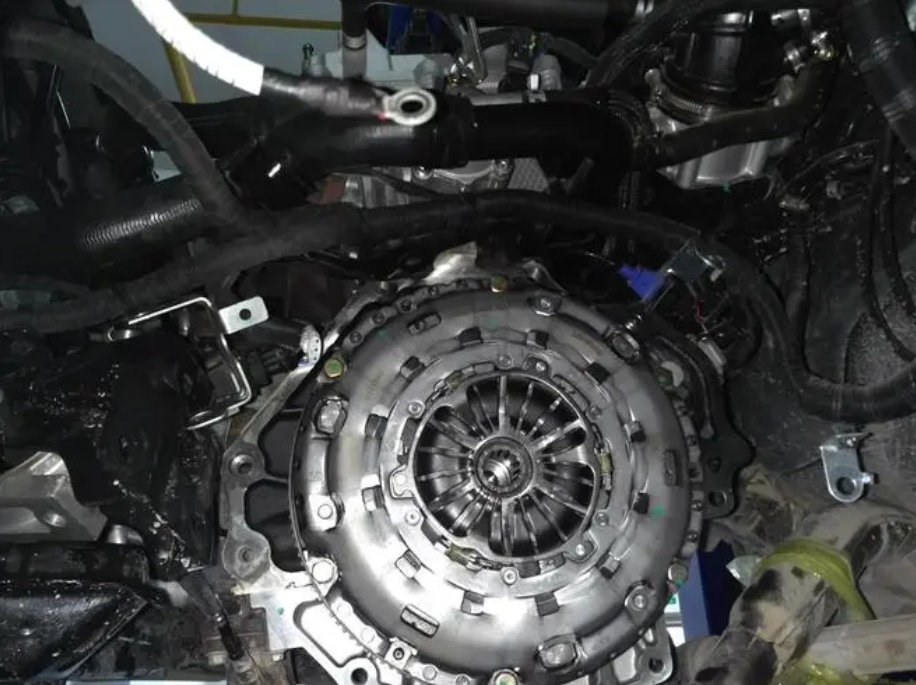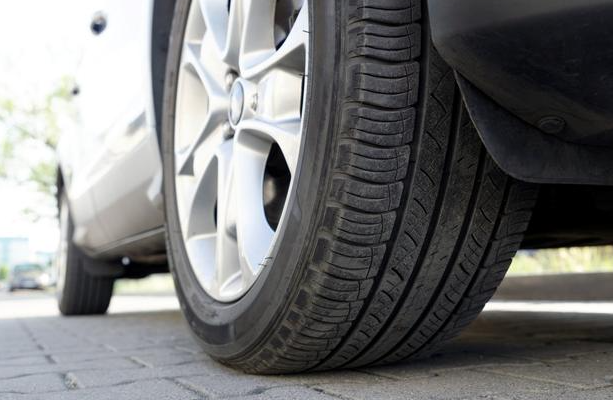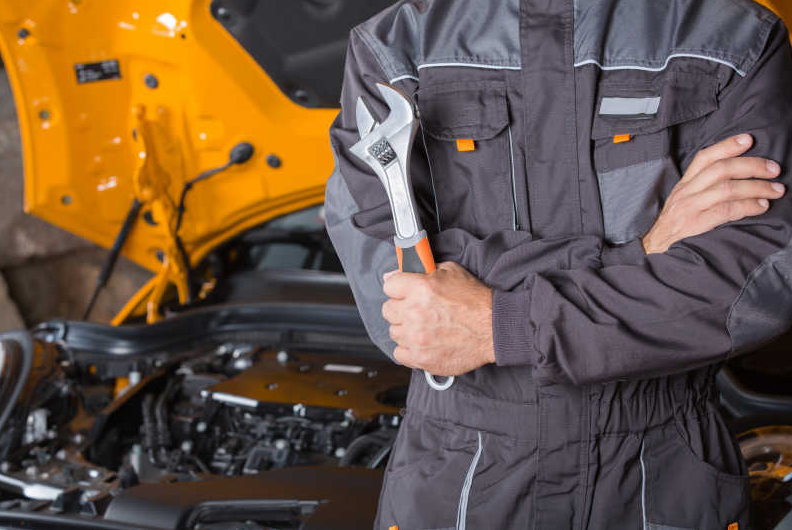Abnormal noises in a car can be both unsettling and perplexing, as they serve as audible indicators of potential issues affecting the vehicle's performance. Whether it's a mysterious clunk, an annoying squeak, or an ominous grinding sound, these noises have the power to instantly capture a driver's attention and spark concern. It's not uncommon for drivers to find themselves wondering about the source and significance of these sounds, as they can range from harmless vibrations to critical problems that require immediate attention. Understanding the common causes behind abnormal noises in a car is essential for maintaining peace of mind, ensuring road safety, and seeking timely repairs when necessary.
1. The Presence of Debris or Large Gaps in the Center Console
The car produces abnormal noises due to the presence of debris or large gaps in the center console. This can be attributed to several factors that cause such noises to occur. One common reason is the accumulation of miscellaneous objects or debris within the center console, which can rattle and create unwanted sounds while driving. Additionally, if there are significant gaps or loose components in the center console, vibrations from the vehicle's movement can result in rattling or clattering noises.
To address this issue, it is recommended to thoroughly inspect the center console for any foreign objects or debris that may have accumulated over time. Removing these items and ensuring a clean and clutter-free interior can help eliminate the source of the noise. If the noises persist, it may be necessary to examine the console's structure and components for any loose or worn-out parts.

2. The Tire Puncture Caused by a Nail
The car produces unusual noises due to a tire puncture caused by a nail. This is a common occurrence that can lead to various sounds while driving. When a nail or sharp object penetrates the tire, it can result in a slow leak or complete loss of air pressure. As a result, the tire may produce a distinct hissing sound as the air escapes.
In addition to the audible hissing noise, a punctured tire can also create a thumping or flapping sound when in motion. This is caused by the uneven distribution of weight as the tire's structure is compromised. The damaged tire may experience irregular tread wear, leading to an imbalanced rotation and generating noticeable vibrations and noise.
If you suspect a tire puncture, it is crucial to address the issue promptly for safety and optimal vehicle performance. Visually inspecting the tires for any visible signs of nails or foreign objects embedded in the tread can help identify the cause. In case of a puncture, it is advisable to have the tire repaired or replaced by a professional tire technician.
Regular tire maintenance, such as checking tire pressure and inspecting for any signs of damage, can help prevent unexpected punctures and associated noises. Maintaining proper tire inflation and promptly addressing any tire-related issues will not only ensure a quieter ride but also enhance safety on the road.

3. The Brake System Malfunction
The car produces abnormal noises due to a brake system malfunction. This is a significant issue that can result in various sounds and potentially compromise vehicle safety. When the brake system experiences a malfunction, it can manifest in several ways, including unusual noises during braking.
One common cause of abnormal brake noises is worn-out brake pads. Over time, brake pads can become thin and worn, causing a metal-on-metal scraping sound when the brakes are applied. This indicates that the brake pads have reached their minimum thickness and need to be replaced promptly to ensure proper braking performance.
Another potential cause of brake system noises is brake rotor damage or warping. If the rotors become warped or have grooves and uneven surfaces, it can lead to vibrations and a pulsating sensation when braking. This can produce a grinding or squealing noise, indicating that the brake rotors require resurfacing or replacement.
Furthermore, loose or faulty brake components, such as calipers or brake hardware, can also contribute to unusual brake noises. Loose calipers can rattle or produce a clunking sound, while faulty hardware, such as springs or clips, can create a clicking or metallic noise.
If you encounter any abnormal noises while braking, it is crucial to have your brake system inspected and repaired by a qualified mechanic. Ignoring brake system issues can lead to decreased braking performance and, ultimately, compromise your safety on the road.
Regular maintenance and inspections of the brake system are essential to prevent brake malfunctions and associated noises. Ensuring timely brake pad replacements, rotor resurfacing or replacement, and addressing any loose or faulty components will help maintain a quiet and reliable braking system, providing you with a smooth and safe driving experience.

4. The Engine Belt Aging and Slipping
The car produces abnormal noises due to engine belt aging and slipping. This is a common issue that can result in various sounds emanating from the engine compartment. The engine belt, also known as the serpentine belt or drive belt, plays a crucial role in powering and operating various engine components.
Over time, the engine belt can become worn out, cracked, or glazed, leading to a decrease in its grip and traction. This can cause the belt to slip on the pulleys, resulting in a squealing or screeching noise. The slipping belt may also produce a high-pitched whining sound, especially during acceleration or when additional load is placed on the engine.
Several factors can contribute to engine belt wear and slipping. Exposure to extreme temperatures, improper tension, or contamination by oil or other fluids can accelerate belt deterioration and increase the likelihood of slipping. In some cases, a misaligned or damaged pulley can also cause belt slippage and generate noise.
If you notice any unusual noises coming from the engine area, it is essential to have the engine belt inspected and replaced if necessary. A qualified mechanic can assess the condition of the belt, ensure proper tension, and identify any underlying issues that may be contributing to belt slippage.
Routine maintenance, such as regular inspection and replacement of the engine belt as recommended by the vehicle manufacturer, is crucial to prevent premature aging and slipping. Additionally, avoiding exposure to excessive heat, keeping the engine area clean, and addressing any fluid leaks promptly can help prolong the lifespan of the engine belt and minimize the occurrence of abnormal engine noises.
By addressing engine belt aging and slipping issues promptly, you can maintain a quieter engine operation and preserve the overall performance and reliability of your vehicle.

5. The Steering System Malfunction
The car produces abnormal noises due to a steering system malfunction. This is a significant issue that can result in various sounds and potentially affect the vehicle's handling and safety. When the steering system experiences a malfunction, it can manifest in several ways, including unusual noises while turning the steering wheel.
One possible cause of abnormal steering noises is a faulty power steering pump. The power steering pump assists in providing hydraulic pressure to aid in steering control. When the pump malfunctions or loses its effectiveness, it can result in a whining or groaning noise when turning the wheel.
Another potential cause of steering system noises is a worn-out steering belt. The steering belt plays a crucial role in transmitting power from the engine to the power steering pump. Over time, the belt can become loose, cracked, or glazed, leading to a slipping or squealing noise. This can occur particularly during sharp turns or when additional force is applied to the steering system.
Additionally, worn-out or damaged steering components, such as tie rods or ball joints, can also contribute to abnormal steering noises. These components help connect the steering system to the wheels and can produce knocking, clunking, or rattling sounds if they are worn or loose.
If you experience any unusual noises while steering, it is crucial to have your steering system inspected and repaired by a qualified mechanic. Ignoring steering system issues can lead to decreased steering responsiveness and compromise your safety on the road.
Regular maintenance and inspections of the steering system are essential to prevent malfunctions and associated noises. Ensuring timely replacement of worn-out belts and addressing any worn or damaged steering components will help maintain a quiet and reliable steering system, providing you with a smooth and safe driving experience.

6. Poor Return of Brake Cylinder
The car produces abnormal noises due to a Poor Return of Brake Cylinder. This is a notable issue that can result in various sounds originating from the brake system. The brake master cylinder is responsible for generating hydraulic pressure to engage the brakes. When the return spring within the master cylinder fails to function properly, it can lead to inadequate retraction of the brake pistons, resulting in abnormal noises.
One of the common noises associated with a faulty brake master cylinder return spring is a continuous squealing or grinding sound when the brakes are released. This noise occurs due to the brake pads maintaining contact with the rotors even after the brake pedal is released. As a result, friction between the pads and rotors persists, generating an unpleasant noise.
A malfunctioning brake master cylinder return spring can have several causes. It may be due to spring fatigue, corrosion, or contamination within the master cylinder assembly. In some cases, improper installation or adjustment of the spring can also contribute to its malfunction.
If you notice any abnormal noises coming from the brakes, it is crucial to have the brake system inspected by a qualified mechanic. They can assess the condition of the brake master cylinder, including the return spring, and determine if repair or replacement is necessary.
Regular maintenance and inspections of the brake system are vital to ensure its proper functioning and minimize the occurrence of abnormal noises. Additionally, addressing any fluid leaks, maintaining the correct brake fluid level, and promptly replacing worn brake components can help prevent brake system malfunctions and associated noises.
By addressing brake master cylinder return spring issues promptly, you can maintain a quiet and responsive brake system, ensuring optimal braking performance and safety while driving.

7. Components Loosing of the Vehicle
The car produces abnormal noises due to loose components of the vehicle. This is a common issue that can result in various sounds coming from different parts of the car. When various components become loose, vibrations from the vehicle's movement can cause them to rattle or create unwanted noises.
Loose components can be found in different areas of the car, including the interior, exterior, and undercarriage. For example, loose interior components such as the center console, door panels, or dashboard can produce rattling or creaking sounds when driving over uneven surfaces. Similarly, loose exterior components like side mirrors, trim pieces, or roof racks can generate wind noise or rattling at higher speeds.
Underneath the vehicle, loose exhaust components, suspension parts, or heat shields can produce clunking, banging, or scraping noises, especially when driving over bumps or rough roads.
To address this issue, it is important to conduct a thorough inspection of the vehicle and identify any loose components. Tightening or securing these parts can help eliminate the source of the noise. It is recommended to seek professional assistance or consult a mechanic to ensure proper diagnosis and tightening of any loose components.
Regular maintenance and inspections play a crucial role in preventing loose components. Taking care to check and tighten bolts, screws, and fasteners during routine maintenance can help avoid potential issues. Additionally, addressing any signs of wear and tear promptly can prevent components from becoming loose over time.
By addressing loose components in the vehicle, you can enjoy a quieter and more comfortable driving experience, free from unwanted noises and vibrations.

In conclusion, abnormal noises in a car can have various causes. When it comes to specific issues such as tire punctures, brake system malfunctions, engine belt aging and slipping, steering system malfunctions, or loose components, it is crucial to identify and address the root cause promptly. Regular maintenance and inspections are essential to prevent these issues and ensure a quieter and safer driving experience. Seeking professional assistance from qualified mechanics is recommended to diagnose and repair any problems related to abnormal noises in a car. By addressing these issues in a timely manner, you can maintain the performance, reliability, and comfort of your vehicle.
Contact Us
For further product information, please visit:
Official website: https://www.lokithorshop.com/
Facebook: https://www.facebook.com/Lokithorshop/
Email address: info@lokithorshop.com
Recommended Reading: How to Choose a Jump Starter That is Suitable for You?




Leave a comment
All comments are moderated before being published.
This site is protected by hCaptcha and the hCaptcha Privacy Policy and Terms of Service apply.